The BEST episodes of NOVA season 36
Every episode of NOVA season 36, ranked from best to worst by thousands of votes from fans of the show. The best episodes of NOVA season 36!
Helps viewers of all ages explore the science behind the headlines.

#1 - The Big Energy Gamble
Season 36 - Episode 1 - Aired 1/20/2009
Can California's ambitious plan to cut greenhouse gases actually succeed?
Watch Now:Amazon
#2 - Doctors' Diaries (1)
Season 36 - Episode 7 - Aired 4/7/2009
In 1987, NOVA's cameras began rolling to chronicle the lives of seven young, bright medical students embarking on the longest and most rigorous endeavor in higher education: the years-long journey to become a doctor. From their first days at Harvard Medical School to the present day, none of them could have predicted what it would take, personally and professionally. In "Doctors' Diaries," a two-hour special, NOVA returns to find out what sorts of doctors—and people—the seven young students have become. The program is the latest installment in the longest-running U.S. documentary of its kind.
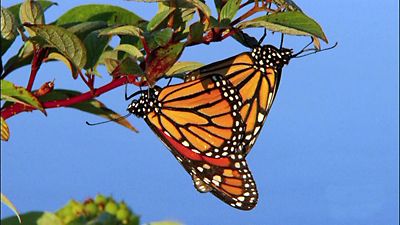
#3 - The Incredible Journey of the Butterflies
Season 36 - Episode 2 - Aired 1/27/2009
Orange-and-black wings fill the sky as NOVA charts one of nature's most remarkable phenomena: the epic migration of monarch butterflies across North America. To capture a butterfly's point of view, NOVA’s filmmakers used a helicopter, ultralight, and hot-air balloon for aerial views along the transcontinental route. This wondrous annual migration, which scientists are just beginning to fathom, is an endangered phenomenon that could dwindle to insignificance if the giant firs that the butterflies cling to during the winter disappear.
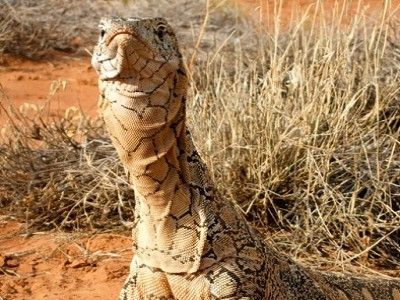
#4 - Lizard Kings
Season 36 - Episode 12 - Aired 10/20/2009
Though they may look like dragons and inspire stories of man-eating, fire-spitting monsters with long claws, razor-sharp teeth and muscular, whip-like tails, these creatures are actually monitor lizards, the largest lizards to walk the planet. With their acute intelligence — including the ability to plan — these lizards are a very different kind of reptile, blurring the line between reptiles and mammals. And even though these bizarre reptiles haven’t changed all that much since the dinosaurs, they are a successful species, versatile at adapting to all kinds of settings. “Lizard Kings” looks at what makes these tongued reptiles so similar to mammals and what has allowed them to become such unique survivors. But while the creatures can find their way around many different habitats, finding them is no easy task. Natural loners, and always on guard, they sense anything or anyone from hundreds of feet away. NOVA follows expert lizard hunter Dr. Eric Pianka as he tracks the elusive creatures through Australia’s heartland with cutting-edge “lizard cam” technology for an unparalleled close encounter with these versatile “living dragons.”

#5 - Darwin's Darkest Hour
Season 36 - Episode 10 - Aired 10/6/2009
This two-hour scripted drama tells the remarkable story behind the unveiling of the most influential scientific theory of all time, Charles Darwin's theory of evolution by natural selection. The program is a special presentation from NOVA and National Geographic Television, written by acclaimed British screenwriter John Goldsmith and directed by John Bradshaw.

#6 - Doctors' Diaries (2)
Season 36 - Episode 8 - Aired 4/14/2009
Seven doctors, 21 years... Saving lives is only part of the story.
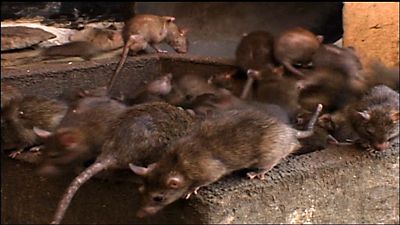
#7 - Rat Attack
Season 36 - Episode 4 - Aired 2/24/2009
Once every 48 years, bamboo forests in parts of northeast India go into exuberant flower. Then, like clockwork, the flowering is invariably followed by a plague of black rats that appear to spring from nowhere to spread destruction and famine in their wake. For the first time on film, NOVA and National Geographic capture this rat population explosion in vivid detail and show how scientists are unraveling the connections between bamboo flowering and rat outbreaks. Ultimately, their research should help local people better cope with the next attack—due in 2056.
#8 - Hubble's Amazing Rescue
Season 36 - Episode 11 - Aired 10/13/2009
The best-known scientific instrument in history was dying. After nearly 20 years in space and hundreds of thousands of spectacular images, the Hubble Space Telescope's gyroscopes and sensors were failing, its batteries running down, and some of its instruments were already dead. The only hope to save Hubble was a mission so dangerous that in 2004 NASA cancelled it because it was considered too risky.
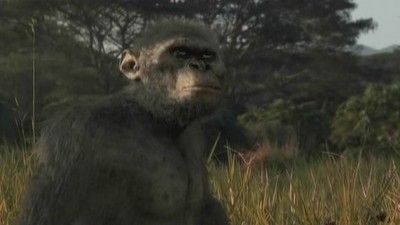
#9 - Becoming Human Part 1: First Steps
Season 36 - Episode 13 - Aired 11/3/2009
The first hour examines the factors that caused the split from the apes. The film explores the fossil of “Selam,” also known as “Lucy’s Child” — an amazing, nearly complete child fossil that helps shed light on our ancestors’ early development and how we began to depart from that of chimps.

#10 - What Are Dreams?
Season 36 - Episode 16 - Aired 11/24/2009
What are dreams and why do we have them? Are they a window into a hidden realm within us? Science is only just beginning to understand. NOVA joins the leading dream researchers and witnesses the extraordinary experiments they use to investigate the world of sleep. From human narcoleptics to sleepwalking cats, from recurrent nightmares to those who can’t dream, each sequence contains a vital clue to the question these scientists are pursuing: Why do we dream?

#11 - The Spy Factory
Season 36 - Episode 3 - Aired 2/3/2009
NOVA investigates the high-tech eavesdropping carried out by the National Security Agency and the effectiveness of surveillance in an age of terrorism.

#12 - Becoming Human Part 2: Birth of Humanity
Season 36 - Episode 14 - Aired 11/10/2009
In gripping forensic detail, the second program in “Becoming Human” investigates the first skeleton that really looks like us — “Turkana Boy” — an astonishingly complete specimen of Homo erectus found by the famous Leakey team in Kenya.

#13 - Musical Minds
Season 36 - Episode 9 - Aired 6/30/2009
An exploration of the effect of music on the brain via four case studies from neurologist Oliver Sacks book "Musicopia" and the MRI visualizations from Sacks' own brain as classical music is played, including Bach's "Mass in B Minor." Study subjects include a man with Tourettes syndrome who has found relief while playing the drums; an autistic savant who is simply dazzling on the piano; a woman who suffers the inability to process music, known as amusia; and a surgeon whose life changed after being struck by lightning.
#14 - Extreme Ice
Season 36 - Episode 5 - Aired 3/24/2009
In collaboration with National Geographic, NOVA follows the exploits of acclaimed photojournalist James Balog and a scientific team as they deploy time-lapse cameras in risky, remote locations in the Alps and Arctic, including Alaska and Greenland. Grappling with blizzards, fickle technology, and climbs up craggy precipices, the team must anchor cameras capable of withstanding subzero temperatures and winds up to 170 miles per hour. In this high-action scientific adventure, NOVA and National Geographic investigate the mystery of the mighty ice sheets, whose still-unknown behavior will affect the fate of coastlines around the world.
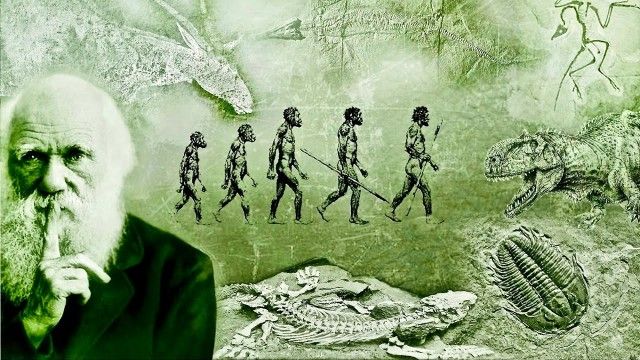
#15 - What Darwin Never Knew
Season 36 - Episode 17 - Aired 12/29/2009
NOVA takes viewers on a journey from the Galapagos Islands to the Arctic, and from the Cambrian explosion of animal forms half a billion years ago to the research labs of today. Here scientists are finally beginning to crack nature’s biggest secrets at the genetic level. And, as NOVA shows in this absorbing detective story, the results are confirming the brilliance of Darwin’s insights while exposing clues to life’s breathtaking diversity in ways the great naturalist could scarcely have imagined.

#16 - Becoming Human Part 3: Last Human Standing
Season 36 - Episode 15 - Aired 11/17/2009
The final program examines the roots of our own species, Homo sapiens, which new evidence pinpoints to southern Africa some 200,000 years ago. New discoveries are upending old ideas and suggesting that our exodus from Africa was far earlier than previously thought.
#17 - Last Extinction (Megabeasts' Sudden Death)
Season 36 - Episode 6 - Aired 3/31/2009
What killed the mammoths? Near the end of the last ice age 13,000 years ago, these mighty beasts disappeared from North America together with some 35 other groups of mammals, including giant ground sloths, saber-tooth cats, and American lions. For four decades, debate has raged over the cause of their abrupt demise. In Last Extinction, NOVA presents an exclusive in-depth investigation of a bold and controversial new hypothesis, which suggests that a massive impact from space could be the culprit. According to the theory, an incoming comet broke up over North America in a devastating series of explosions, causing widespread forest fires and wiping out plants, animals, and prehistoric people. The evidence comes from a mysterious black mat layer discovered at more that fifty sites across the continent. The black mat contains exotic materials including rare microscopic nanodiamonds that are claimed to be the signature of an extraterrestrial impact. But other scholars question the evidence and argue that ancient hunters armed with a lethal stone weapon the Clovis spear point drove the giant beasts into oblivion. Still others believe the unstable climate at the end of the Ice Age was responsible. NOVA explores the dramatic new evidence of a cosmic explosion and the possibility that all three explanations may be correct.